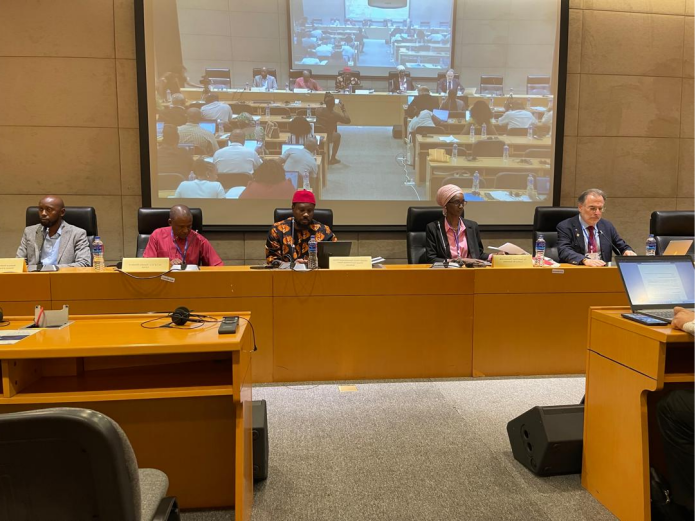By Kebba AF Touray
e-RIGHTS Project Partners have urged for stronger protections at the African Commission on Human and people’s Right (ACHPR), in Banjul, as Internet Shutdowns and Digital Rights Violations Rise Across Africa.
The European Union (EU)-funded e-RIGHTS Project partners — Avocats Sans Frontières France (ASF France), CITAD, and Spaces for Change, held a panel session titled “Amplifying Voices: The Role of the ACHPR in Advancing Digital Rights in Nigeria and Africa”.
The panel discussion was held at the Forum for the Participation of NGOs in the 81st Ordinary Session of the African Commission on Human and People’s Rights (ACHPR) in Banjul, The Gambia, on 15th October 2024.
The panel brought together legal, technological, and civil society leaders to discuss the critical challenges in protecting online freedoms in Africa.
Experts from across the continent raised concerns over the escalating threats to digital rights, including the alarming rise in internet shutdowns.
Internet shutdowns have become an increasingly troubling trend, with African governments resorting to cutting off access during protests, elections, and periods of political unrest.
In 2023 alone, 26 recorded internet shutdowns occurred across 14 African countries, with Ethiopia, Sudan, and Nigeria among the most frequent offenders.
These shutdowns, often justified under the guise of national security, have far-reaching consequences for freedom of expression, access to information, and economic development.
During the panel, Ms. Neneh Cham, President of the Gambian Bar Association, highlighted the devastating impact of these shutdowns on journalists, activists, and ordinary citizens.
She stated, “Internet shutdowns are not just a violation of digital rights, but also of basic human rights. They disrupt economies, silence dissent, and stifle democratic processes.”
Dr. Y.Z Ya’u, Executive Director of the Centre for Information Technology and Development (CITAD), echoed these concerns, pointing out that internet disruptions disproportionately affect marginalized communities, deepening the digital divide and limiting access to essential services.
“Governments need to recognize that the internet is an enabler of development, not a tool to be switched off at will,” he said, emphasizing the need for inclusive digital policies.
He also advocated for the inclusion of marginalized groups in the digital space, saying, “If access to information and education is a right, then access to the infrastructure and tools for this must also be a right.”
Boubacar Demba Couly, Founder of the Gambian Tech Project, stressed the importance of safeguarding digital rights to drive technology adoption and innovation.
He noted that sustained internet access is essential for the growth of Africa’s tech ecosystem, which has the potential to significantly contribute to the continent’s economic development.
The e-RIGHTS project, introduced by Ivan Paneff, a European Judicial Expert and Board Member of ASF France, was presented as a crucial tool for empowering human rights defenders, activists, and journalists.
Paneff also highlighted the need for innovative strategies to confront these emerging challenges.
Chinedu Gbulie, the Communications and I.T Officer of Avocats Sans Frontières France and the panel’s moderator, spoke about the e-RIGHTS Digital Learning System, a platform that provides resources to help users better understand their digital rights and navigate online spaces safely, especially in regions facing increasing digital repression.
The event attracted an engaged and vocal audience, with participants raising concerns and asking pressing questions about how to counter the growing trend of digital crackdowns and protect freedoms in cyberspace.
Panelists emphasized that stronger legal frameworks, collaboration with civil society, and heightened international advocacy are essential to reversing these alarming trends.
As Africa continues to advance into the digital age, the panelists emphasized that urgent action is needed to protect online freedoms and ensure that technology serves as a tool for empowerment, not repression.


















